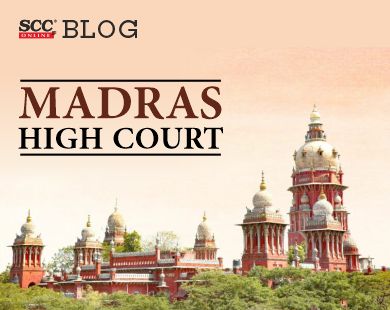Madras High Court: In a writ petition filed by an Advocate praying to declare that the impugned order of the National Company Law Board imposing dress code for Advocates for appearance before the Tribunal as ultra vires, null and void, and quash the same as illegal and arbitrary, the division bench of R. Mahadevan* and Mohammed Shaffiq, JJ. held that the impugned order is without authority and is illegal.
The Court said that for regulating and streamlining the various activities of the legal practitioners, including a uniform dress code, the Advocates Act was enacted in the year 1961. Under Chapter IV of the Bar Council of India Rules, the form of dresses or robes to be worn by Advocates both male and female, before various Courts, Tribunals and forums, is enumerated explicitly. The mandatory compliance required before the High Courts or Supreme Court has not been prescribed for other forums and there is a clear distinction. Further, it is obvious from Section 34 of the Advocates Act, 1961 that only the High Court has powers to frame rules laying down the conditions for practice, which undoubtedly includes the dress code.
The Court said that it is a settled law that the High Courts can exercise their powers under Article 226 of the Constitution of India or the supervisory jurisdiction under Article 227 of the Constitution over the Tribunals, which exercise judicial or administrative function.
Placing reliance on M.P. High Court Advocates Bar Assn. v. Union of India, 2022 SCC OnLine SC 639, the Court said that impugned order is without jurisdiction and authority and has no basis in law. It is a trite legal position that the orders of the Tribunals, either judicial or administrative, are subject to judicial review of the High Courts, as they are subordinate to it.
Further, it said that from the conjoint reading of Section 34 of the Advocates Act and the Bar Council of India Rule it is clear that only the High Courts can frame rules for dress code for the appearance of the Advocates before it, and for the Courts and Tribunals, subordinate to it. In absentia, the rules in Chapter IV of the BCI Rules shall prevail, and the Tribunals have no authority to issue any instructions determining the dress code for the appearance of the advocates before it.
The Court said that when there are statutory rules framed by the competent authority and when the statute has conferred the powers on the High Court with reference to prescription of the dress code, then any instruction, direction, advisory by the Tribunal, especially when it runs contrary to the statutory rules, is ultra-vires the Act, and without there being any source of power for issuance of such directions.
Further, it said that the power conferred under Rule 51 of the National Company Law Tribunal Rules, 2016 (‘NCLT Rules’) is for the purpose of discharging its functions under the Act in accordance with the principles of natural justice and equity and is not an enabling provision to be read along with Section 432 of the Companies Act, 2013, which deals only with right to legal representation, and cannot be meant to confer upon it the power to prescribe the dress code, more so when it is contrary to the BCI Rules. Similarly, the words “such other powers” used in Rule 16 (f) of the NCLT Rules has to be read keeping in mind the later part of the rule dealing with the administrative power of the President, as head of the Tribunal, while dealing with the staff, and cannot be stretched to mean to include the power to frame any rule or issue any instruction to prescribe the dress code for the advocates. Also, such instruction runs contrary to Rule 124 of NCLT Rules, which states that the professionals shall follow the dress code prescribed in their code of conduct.
[R. Rajesh v. Union of India, 2023 SCC OnLine Mad 666, decided on 08-02-2023]
*Judgment by: Justice R. Mahadevan.
*Apoorva Goel, Editorial Assistant has reported this brief.







